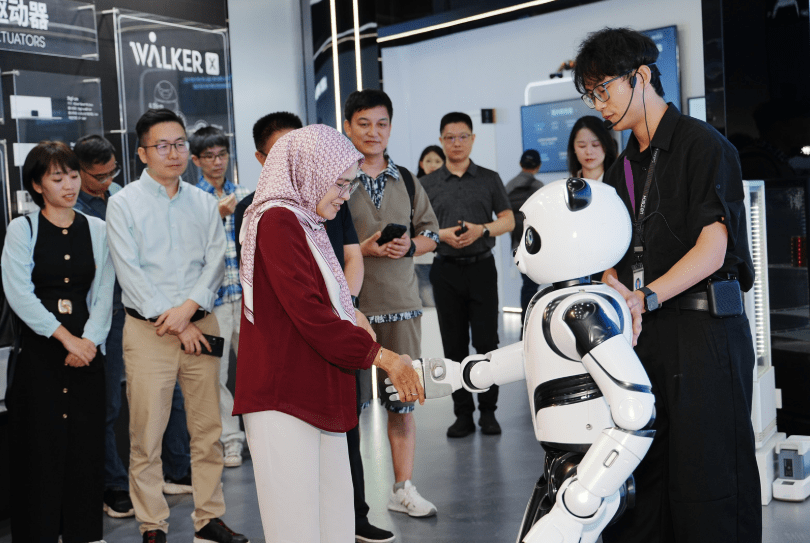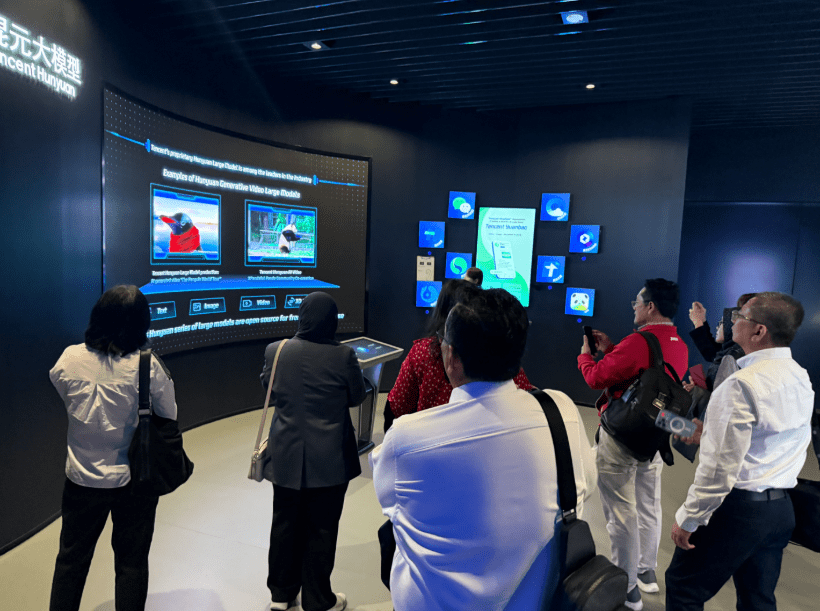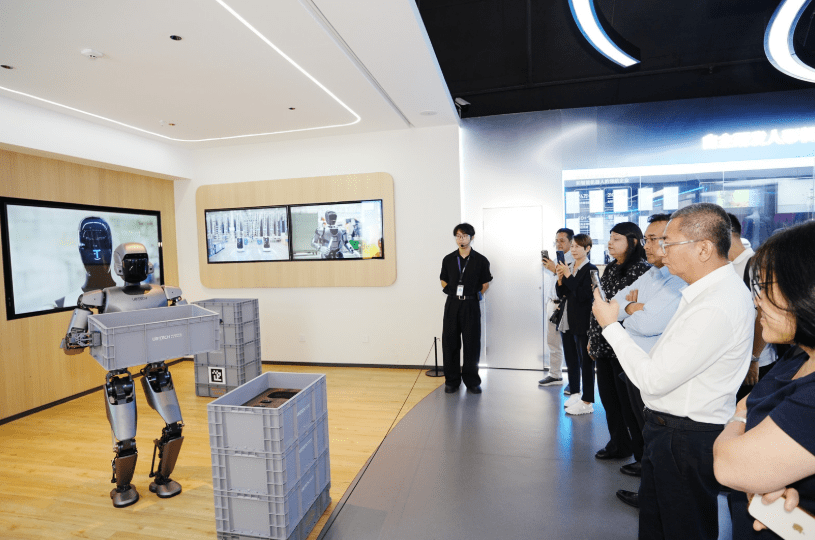Abstract: Asia School of Business (ASB) conducted recently the China leg of its global leadership program (GLP), under which representatives from Malaysian governmental and financial institutions toured forerunner cities and companies in south China.
BEIJING, Sept. 5 (Xinhua) — Asia School of Business (ASB) conducted recently the China leg of its global leadership program (GLP), under which representatives from Malaysian governmental and financial institutions toured forerunner cities and companies in south China.
The program, led by Gillian Ng, executive director of ASB-Iclif Executive Education Center, set a four-day long in-depth learning journey for its China leg from August 25 to 28.
In Shenzhen, Malaysian representatives visited Tencent’s headquarters to explore the latter’s latest breakthroughs in sectors such as the Internet of Things (IoT), big data, 5G, and AI.

Tencent’s management team expounded how its digital innovation has enabled the agricultural economy, distance education, and telemedicine services to them, who gained a deeper understanding about how technology is driving social and industrial transformation and shaping the future business landscape.
Later, they visited BYD, where they sighted BYD’s cutting-edge “Blade Battery” technology and watched a spectacular dance show by BYD’s smart electric vehicles, marveling at the Shenzhen-based Chinese auto maker’s determination and innovative endeavors in overcoming challenges on its path to become a global leader in electrical vehicle (EV) industry.
When visiting UBTech, another Shenzhen-based firm adept at industrial application of humanoid robots, Malaysian representatives interacted with multiple robots and experienced their application in manufacturing, hazardous operations, and public services.

Focusing on solving labor shortages and workplace safety issues, UBTech has innovated around real-world challenges and provided a new perspective on how robotics and automation drive the sustainable development of industries, according to the company’s R&D team.
Meanwhile, a visit to Qianhai Taikang International Hospital in Shenzhen was also arranged under GLP. Malaysian representatives learned about the hospital’s smart healthcare solutions and digital patient management system, which improved operational efficiency, optimized patient experience and allocated medical resources more effectively.
In Guilin, they paid a visit to Esquel Group, a world-leading textile manufacturer. After communicating with Esquel’s senior management, they better understood how Esquel, amid numerous international challenges, adhered to its sustainable development transformation strategy to promote technological upgrading and process innovation.
In Esquel’s garden-like production park, they witnessed the company’s continuous efforts in green manufacturing and reducing environmental impact via empowering industry technological innovation and leading breakthroughs in waterless dyeing technology.
In addition, these Malaysian representatives attended a special lecture by economist Rong Sen entitled “China’s Economic Pattern and Development of Green Finance”, gaining a deeper knowledge on China’s latest trends and practical achievements in economic transformation, industrial upgrading, and green finance.
During the four-day journey, business executives of the Malaysian representatives group also discussed with Chinese entrepreneurs and experts on topics such as industrial trends, innovative development, business models, and sustainable strategies.
Apart from business and technology learning, the GLP also included a cultural experience session. Malaysian business executives tried traditional Chinese tie-dye craftsmanship firsthand and took a boat tour on the Li River to appreciate the unique charm of Chinese culture and the beauty of nature.
From learning about Tencent’s digital innovation, BYD’s resilient breakthroughs, UBTech’s value-driven robotics, Taikang’s smart healthcare, to Esquel’s sustainable transformation, the program provided participants with cutting-edge insights at the intersection of business, technology, and sustainable development.
Originally published by Xinhua Silk Road Information Service.





